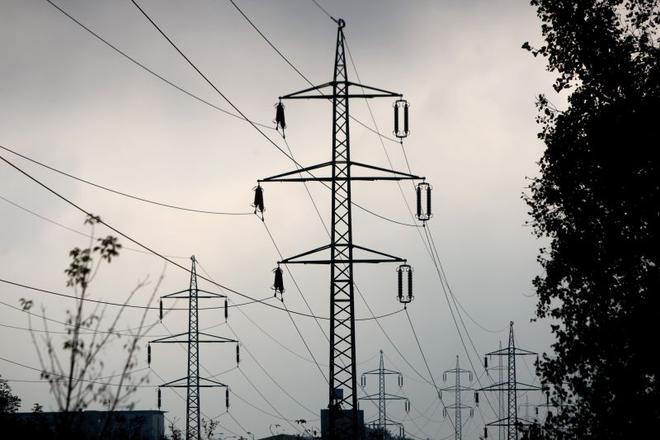THE PROFITABILITY of aluminium smelter Slovalco is highly dependent on its energy-related costs, and so as its 20-year discounted energy price contract is set to terminate in late 2013, the company is warning a rise to market energy rates will make the firm uncompetitive on the international market. But threats to the business are abating, for now, as a preliminary agreement with Slovakia’s biggest power producer and negotiations to reduce electricity transmission charges clear the way for future operations.
“We believe that we will manage to reach a positive result and keep the production of Slovalco,” Milan Veselý, the general director of Slovalco said as cited by the TASR newswire. “The problem is not solved yet, even though we appreciate efforts of the government to improve the competitive position of Slovakia’s industry also by changing charges related to electricity consumption.”
Electricity makes up a significant part of aluminium production costs. The smelter needs 14 megawatt hours (MWh) to produce one ton of aluminium.
“Aluminium is sold on the market at the price set by the stock exchange,” said Veselý. “Thus the electricity price is the determining factor of the price competitiveness and thus the survival of the production plant.”
Power producer Slovenské Elektrárne (SE) and Slovalco signed a July 18 letter of intent confirming their commitment to agree on a contract for electricity supply, SE said in a press release. The new contract will govern the supply of electricity to the smelter totalling 19 terawatt-hours for a period of eight years, beginning from January 2014. The discount part of the agreement has not been revealed.
At present, SE sells electricity to Slovalco at fixed prices based on the electricity supply contract signed in 1994. The contract will terminate later this year. According to the Hospodárske Noviny daily, Slovalco consumes annually one-tenth of the SE’s total electricity production. While SE points out that electricity prices increased since the signing of the present contract, Slovalco argues that current electricity prices would make it uncompetitive. Slovakia has one of the highest [end-user] electricity prices for businesses in Europe.
“We will continue to focus on strengthening our competitiveness through efficiency measures and cost improvements, while in parallel working to achieve a competitive future power supply,” a statement from Slovalco promises.
The letter of intent points the way toward a solution to prices on electricity as a commodity, but there are additional hurdles. Slovalco is also holding talks with respective ministries and the Slovak government about setting long-term electricity transmission fees and contributions to the nuclear fund as the company argues it is necessary to put it on an even playing field with international market rivals.
Slovalco is one of central Slovakia’s largest employers, employing directly and indirectly 3,000 people. Its closure would significantly increase the jobless rate in the region which already has an unemployment rate of some 17 percent. Based in Žiar nad Hronom, Slovalco is owned by Norwegian Hydro Aluminium (55.3 percent) and ZSNP Žiar nad Hronom (44.7 percent) and produces approximately 165,000 tons of aluminium annually.
“The agreement reflects efforts of SE to support strategic social-economic role of Slovalco, the key employer in the region of Žiar nad Hronom,” said Janka Burdová, a spokeswoman for SE. SE is owned by the Italian energy group Enel, which holds a 66-percent stake and the Slovak government controls the remaining 34 percent. SE is the largest producer of electricity in Slovakia and the second largest in Central and Eastern Europe.
Helping hand from the state
Electricity consumers contribute, within their electricity bills, to the National Nuclear Fund. The aim is to collect money for decommissioning state-owned nuclear power stations like the A1 and V1 in Jaslovské Bohunice. As a major consumer, Slovalco pays €7.3 million into this fund annually, the Hospodárske Noviny wrote July 24. As of the next year Slovalco may get a helping hand from the state in the form of capping its annual contribution to €2 million.
“We perceive the proposal to cap the contribution to the nuclear fund as a very important solution to keeping the operation [of Slovalco],” Veselý of Slovalco told Hospodárske Noviny.
Based on an Economy Ministry proposal, the cap should apply to all companies in Slovakia. However, as Hospodárske Noviny points out, Slovalco is the only company paying more that €2 million into the fund each year. Martin Vlachynský, analyst with the INESS economic think tank sees the proposed change as unfair to small electricity consumers.
Slovalco also hopes that the state will reduce its other charges related to transmission and distribution of electricity. The Slovak government has already supported the steelmaker U.S. Steel Košice this way, when it promised €15 million via subsidies for greener energy production. Other companies in Slovakia are seeking reductions as well. The Regulatory Office for Network Industries (ÚRSO) promises reduced fees related to the distribution of electricity.



 Electricity prices are a significant matter for Slovalco. (source: SME)
Electricity prices are a significant matter for Slovalco. (source: SME)